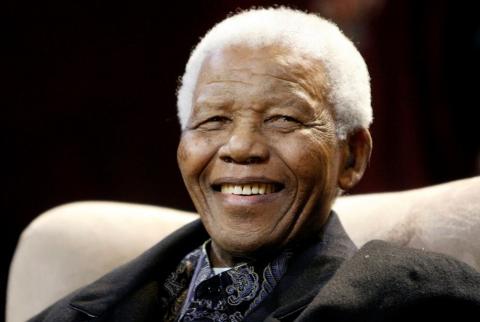
Nelson Mandela, the revered anti-apartheid revolutionary and former President of South Africa, left an enduring legacy that extends far beyond political boundaries. His belief in Ubuntu, a profound African philosophy, and the power of artistic expression holds immense significance for decolonising peace education in Africa.
Watch Nelson Mandela join Johnny Clegg on stage during 'Asimbonanga' and celebrate Nelson Mandela Day with music and dance.
Understanding Ubuntu
Ubuntu, often translated as “I am because we are,” encapsulates the interconnectedness of humanity. It emphasises communal bonds, empathy, and shared responsibility. Mandela embodied Ubuntu throughout his life, recognising that our well-being is intricately tied to the well-being of others.
Ubuntu and Decolonising Peace Education
1. Collective Well-Being
- Mandela’s Ubuntu philosophy challenges the individualistic mindset perpetuated by colonial education. Decolonising peace education requires shifting the focus from isolated individuals to interconnected communities.
- Peace education should foster a sense of collective well-being, where learners understand that their actions impact others and vice versa.
2. Empathy and Compassion
- Ubuntu encourages empathy and compassion. Mandela’s ability to forgive his oppressors after 27 years of imprisonment exemplifies this.
- Decolonised peace education should prioritise empathy, teaching learners to understand diverse perspectives and embrace compassion.
3. Rehumanising Education
- Colonial education often dehumanised indigenous knowledge and cultures. Ubuntu seeks to rehumanise education by valuing diverse ways of knowing.
- Peace education should integrate indigenous wisdom, oral traditions, dance, artist expression and community-based practices, honouring the richness of African heritage.
4. Ubuntu in Conflict Resolution
- Mandela’s negotiation skills during the transition from apartheid to democracy were rooted in Ubuntu. He sought win-win solutions, prioritising reconciliation over revenge.
- Decolonised peace education should teach conflict resolution through dialogue, consensus-building, and Ubuntu-inspired principles.
5. Ubuntu and Inclusivity
- Ubuntu rejects exclusion. It reminds us that our humanity is incomplete without recognising the humanity of others.
- Peace education must actively dismantle colonial hierarchies, ensuring inclusivity and equal participation.
Conclusion
Nelson Mandela’s Ubuntu philosophy invites us to reimagine peace education. As we strive to decolonise education in Africa, let us embrace Ubuntu’s wisdom by building bridges, fostering empathy, and nurturing a collective spirit. Through music and dancing, PhotoVoice, storytelling, video and theatre may we learn to express and foster peace for ourselves and our communities and in doing so, honour Mandela’s legacy and pave the way for a more harmonious and just Africa.

